Energy Earnings Calculator
Your Solar Energy
Results
How This Works
Based on current SunContract data (October 2025), SNC has a value of $0.032. Your earnings are calculated based on your solar production, selling price, and the grid sell rate.
Producers earn 15-20% more with SunContract compared to selling to the grid. Your actual earnings may vary based on market conditions and token price.
Most crypto coins are just digital bets on hype. But SunContract (SNC) is different. It’s not a meme, not a speculative play on AI, and not another clone of Bitcoin. It’s a working piece of energy infrastructure built on blockchain - and it’s already changing how people buy and sell electricity in Slovenia.
If you’ve ever wondered what a crypto coin actually does in the real world - beyond price charts and Reddit threads - SunContract gives you a rare answer. It’s not about getting rich overnight. It’s about cutting out middlemen from your power bill. And it’s already happening.
What Exactly Is SunContract (SNC)?
SunContract (SNC) is an ERC-20 token built on the Ethereum blockchain. Its contract address is 0xF4134146AF2d511Dd5EA8cDB1C4AC88C57D60404. But calling it just a “token” misses the point. SNC is the fuel that runs a real energy marketplace.
The platform lets homeowners with solar panels, wind turbines, or even small hydro systems sell their extra electricity directly to neighbors. No utility company. No complex contracts. Just smart contracts that auto-execute when energy is delivered. You set your price. The buyer picks it. The energy flows. Payment happens in SNC - but you never have to touch crypto if you don’t want to.
The system converts euros to SNC instantly for billing. So if you’re a consumer paying €0.12 per kWh, you’re not worrying about SNC’s price swinging up or down that day. The platform handles the exchange behind the scenes. For producers, though, SNC is how they get paid - and how they earn 15-20% more than they would from selling back to the grid.
How Does It Actually Work?
Think of it like Uber for electricity.
On one side, you’ve got energy producers - say, a family in Ljubljana with rooftop solar. Their panels generate 10 kWh more than they use on a sunny afternoon. Instead of letting that power go to waste or selling it to the grid at a low fixed rate, they list it on SunContract’s app. They set a price: €0.10 per kWh. That’s cheaper than the local utility’s retail rate.
On the other side, a neighbor in the same neighborhood - maybe someone with an electric car - opens the app. They see the offer. They click “Buy 5 kWh.” The smart contract locks in the deal. The energy flows through the existing power lines. The payment is made in SNC. The producer gets paid. The buyer gets cheaper power. Everyone wins.
The platform uses AI to match supply and demand in real time. It prioritizes energy sources: solar first, then wind, then grid backup. It even integrates with home energy monitors so you can see exactly where your power is coming from.
Why Does SNC Have Value?
SNC isn’t just a payment method - it’s the only way to participate fully in the ecosystem. You can’t list energy for sale without holding SNC. You can’t access premium features like automated pricing or long-term contracts without it. Even if you pay in euros, the system still uses SNC behind the scenes to settle transactions.
As of October 2025, there are 77.88 million SNC tokens in circulation. The price hovers around $0.031-$0.034. That’s down from its all-time high of $0.10 in 2021, but it’s also up from the $0.022 lows of early 2024. Market cap sits at $2.66 million - tiny compared to giants like Ethereum or even other energy tokens like Power Ledger.
But here’s the catch: SNC’s value isn’t tied to speculation. It’s tied to usage. If more people start using SunContract to trade energy, demand for SNC goes up. That’s real utility - not just investor hope.
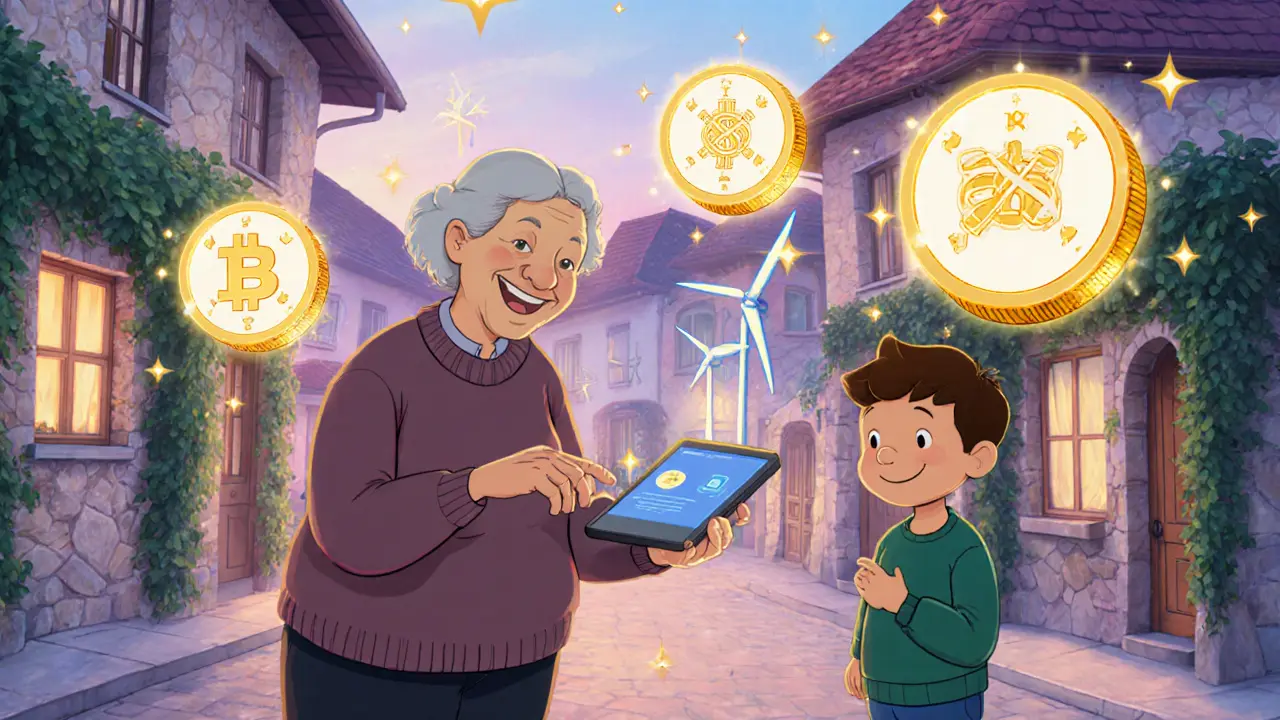
Where Is It Used? (And Where It Isn’t)
This is where SunContract gets tricky.
It works. It’s live. It’s been running since 2018. And it’s only available in Slovenia. That’s it. No other country has been added yet, despite the platform’s “Global Energy Marketplace” vision.
Why? Because energy regulation is a national mess. The EU passed laws in 2023 encouraging peer-to-peer trading - but each country has to implement it. Only Slovenia has done it fully. That means SunContract can’t expand. Not legally. Not yet.
So right now, you’ve got 2,347 active energy producers and 8,762 consumers - almost all of them in Slovenia. Commercial users make up 63% of transactions, even though residential users are 78% of accounts. That tells you something: businesses see the savings. Regular people are still figuring it out.
Compared to Power Ledger, which operates across Australia, the U.S., and Europe, SunContract feels small. But it’s also the only one with real, daily, real-world transactions happening right now.
What Do Users Actually Say?
Reddit threads from June 2025 tell the real story.
One user, SolarEnthusiast2023, said: “The platform works as advertised - but onboarding takes three weeks. Three weeks just to get your solar panels verified. That’s longer than getting a new internet connection.”
Another, GreenTechInvestor, shared: “I earn about €0.45 per day from my solar panels. That’s real money. But it’s not life-changing. The ROI takes years.”
Trustpilot has only 12 reviews - but the average is 3.2/5. People like the transparent pricing. They hate the slow support. Replies take 72 hours on average. Payment options are limited. You can’t use PayPal. You can’t use credit cards directly. You need to buy SNC on an exchange first.
And here’s the hidden problem: the platform says SNC price doesn’t affect your bill. But users report confusion. If SNC drops 30% in a month, does that mean the producer’s income dropped? Or is it just the token value? The documentation doesn’t make this clear. That’s a red flag.

Is It Worth It? Pros and Cons
- Pros: Real energy savings for consumers. Higher returns for producers. No middlemen. Uses existing grid. EU-compliant. Transparent pricing. Works right now in Slovenia.
- Cons: Only works in Slovenia. Slow onboarding. Weak customer support. Low liquidity. Small community. Token price volatile. Confusing documentation.
If you live in Slovenia and have solar panels? It’s worth exploring. You could be earning extra income without changing your setup.
If you’re outside Slovenia? You can still buy SNC on exchanges like BitMart or MEXC. But you’re speculating - not using the platform. That’s not the same thing.
What’s Next for SunContract?
They’re not sitting still.
In October 2025, they launched Version 3.1 - adding smart contract rules that automatically prioritize solar over wind over grid power. That’s a smart move. It makes the system more efficient.
The 2026 roadmap includes expansion into Croatia and Austria. That’s huge. If they get regulatory approval there, adoption could jump. They’re also planning a DAO - a decentralized governance system where token holders vote on upgrades. That could build real community trust.
Analysts from Deloitte say SunContract’s biggest strength isn’t its tech - it’s its proof of concept. Slovenia is a lab. If it works there, it can work elsewhere. But they warn: “Without expansion in the next 18 months, SunContract risks becoming a footnote.”
So here’s the truth: SunContract isn’t the next Bitcoin. It’s not going to make you rich. But it’s one of the few crypto projects that’s already solving a real problem - and it’s doing it on a small scale, with real people, in real homes.
If you care about clean energy, fair pricing, and cutting out corporate middlemen - then SNC isn’t just a coin. It’s a tiny step toward a better system.
And sometimes, that’s more valuable than any price chart.
Is SunContract (SNC) a good investment?
It depends on what you mean by "investment." If you’re looking for quick price gains, SNC is risky. Its market cap is under $3 million, and trading volume is low. It’s volatile and easily manipulated. But if you believe in decentralized energy and think SunContract will expand beyond Slovenia, then holding SNC could make sense. The token’s value is tied to usage - not hype. More users = more demand for SNC. That’s a real, long-term play.
Can I use SunContract if I don’t live in Slovenia?
No, not for trading energy. The platform only works in Slovenia because that’s the only country with full regulatory approval for peer-to-peer energy trading. You can still buy SNC on crypto exchanges like BitMart or MEXC, but you won’t be able to connect your solar panels or buy electricity through the app. You’re just speculating on the token.
Do I need to understand crypto to use SunContract?
Not really. The SunContract app handles everything. If you’re a consumer, you just pick energy offers and pay in euros. If you’re a producer, you’ll need to set up a wallet and hold some SNC, but the app walks you through it. You don’t need to know how blockchain works - just how to use your phone. The learning curve is about 3-5 hours for buyers, 10-15 for producers.
How much money can I make selling energy with SunContract?
It varies. One user reported earning €0.45 per day from a single solar panel. That’s about €13.50 per month. That’s not a fortune - but it’s free money from energy you were already producing. Compared to selling back to the grid, which often pays less than €0.05 per kWh, SunContract lets you charge €0.08-€0.12. Over a year, that adds up. But it’s not a replacement for a salary.
Why is SunContract’s price so low compared to other crypto coins?
Because it’s not designed to be a speculative asset. It’s a utility token for a niche energy platform with limited users. Its value comes from actual usage - not investor frenzy. A high price wouldn’t help the platform. A low, stable price makes it easier for everyday people to use. It’s meant to be practical, not profitable for traders.
Is SunContract safe and legal?
Yes, in Slovenia. The platform complies with EU energy regulations and uses audited smart contracts. All transactions are recorded on Ethereum, which is secure. But like any crypto project, you’re responsible for your own wallet security. Never share your private keys. And remember - outside Slovenia, you’re not using the energy platform, so the legal risks are different.

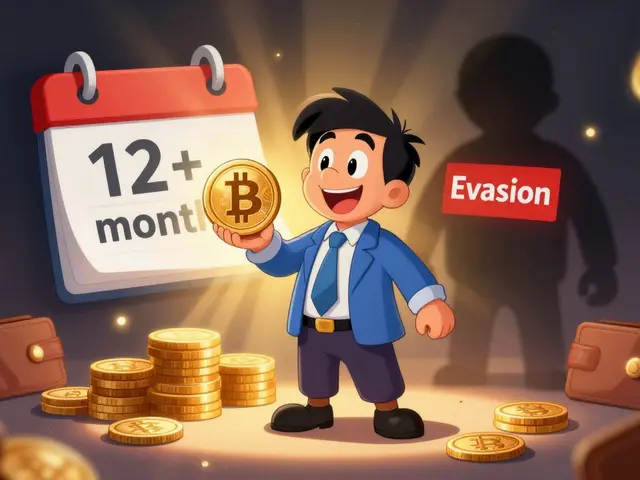

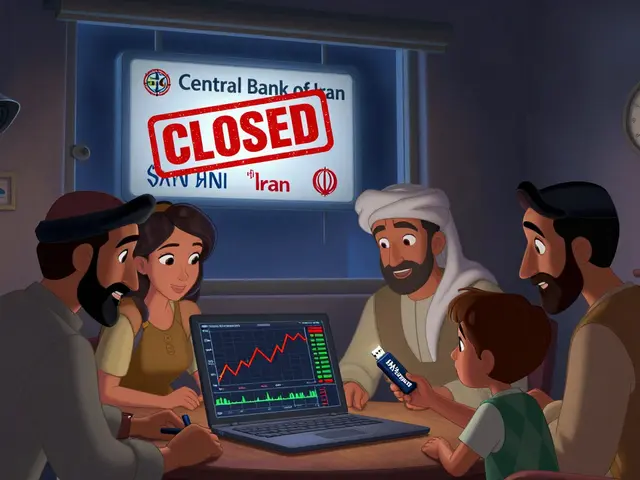
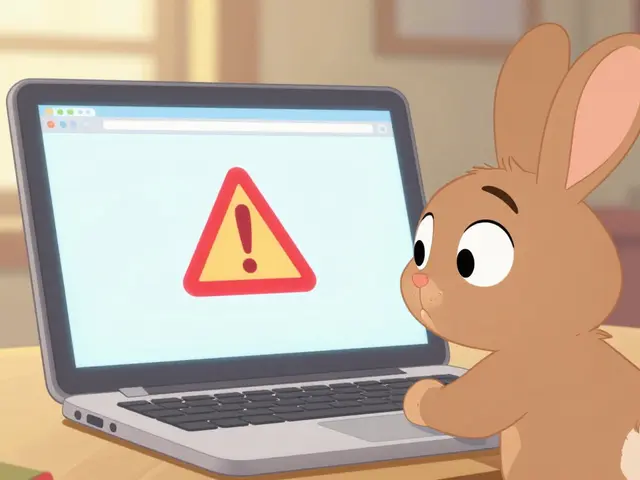
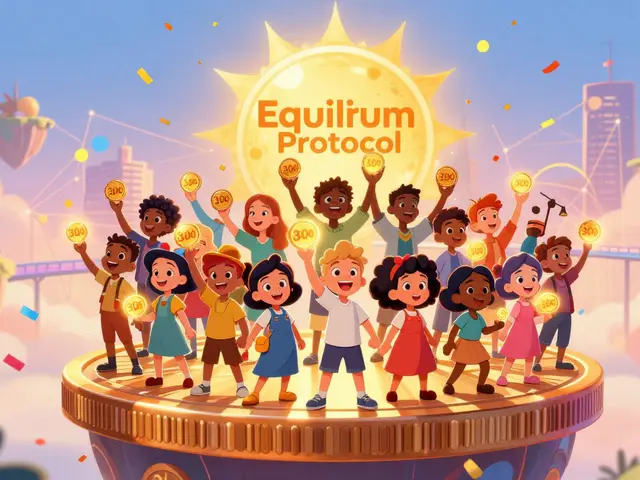
Derajanique Mckinney
this is so cool 😍 i just bought my first solar panel and now i wanna try this lol
Rosanna Gulisano
Only works in Slovenia? Then it's useless
Sheetal Tolambe
This is actually inspiring! I hope more countries follow Slovenia's lead. Clean energy should be accessible to everyone
gurmukh bhambra
lol they're using blockchain for electricity? next they'll say your fridge is running on crypto. this is just a way to get rich off gullible people. the government is behind this to track us
Sunny Kashyap
india should do this. why is only slovenia allowed to be smart
james mason
Oh wow. A crypto project that actually does something? How quaint. I'm sure it's adorable that people in Slovenia are trading solar power like it's 2012. Meanwhile, real innovators are building AI-driven microgrids with zero token overhead. This feels like a museum piece.
Anna Mitchell
I love seeing real-world use cases for crypto. Not just gambling. This is the future.
Pranav Shimpi
u guys dont get it. the onboarding is a nightmare. u need to upload ur meter cert, ur panel specs, ur id, ur bank doc, then wait 3 weeks for someone to verify it manually. and if u miss one comma u start over. and the support? they reply in 3 days. i lost 2 weeks trying to get my 120w panel listed. its a joke. but the pay is real. i get 0.45 euro a day. not much but its free money. just dont expect it to be easy
jummy santh
This is truly remarkable. In Nigeria, we face daily power outages that last up to 18 hours. The idea of peer-to-peer energy trading could revolutionize our communities. I hope SunContract considers expanding to Africa soon. The need is immense, and the technology is sound.
Saurav Deshpande
They say it's not speculative. But why is the token even necessary? If you're paying in euros, why not just use euros? This is just crypto theater. They need a token to inflate a market cap. They're pretending it's utility when it's just another pump. The whole thing smells like a vanity project for a few Slovenian engineers who got lucky with regulation.
Henry Gómez Lascarro
Let me break this down for you people who think this is some kind of revolution. First, it's a tiny platform in one country with 11k users. Second, the token is worth 3 cents because no one wants it except speculators. Third, the whole system relies on a centralized app that handles the euro conversions anyway. So where's the decentralization? Fourth, the documentation is confusing because they don't want you to understand that SNC's value is entirely artificial. Fifth, if this was real innovation, why is it still stuck in 2018 tech? It's not a solution. It's a sideshow. And you're all clapping like it's the Olympics.
Will Barnwell
I'm sorry but this is just a glorified barter system with a blockchain sticker on it. You're telling me people are excited about earning 45 cents a day? That's less than what I make from my coffee machine in 3 minutes. And the fact that you need to buy SNC on an exchange just to sell electricity? That's not utility. That's a tax on participation.
Jean Manel
Market cap under $3M? Trading volume so low it's practically invisible? And you're calling this a 'real-world use case'? This isn't innovation. It's a graveyard for crypto dead ends. The only thing this proves is that you can tokenize anything - even sunlight - and convince a handful of people to buy it. Congrats. You've created a niche digital collectible for people who think they're saving the planet while they wait for their 45 cents.
William P. Barrett
There's something quietly profound here. It's not about the money. It's about redefining ownership. For the first time, a person who generates energy isn't just a passive consumer of a utility monopoly. They become a node in a network. The token is just the handshake. The real shift is cultural - from dependence to agency. Maybe it's small. Maybe it's slow. But it's real. And that's rarer than any moonshot.
Cory Munoz
i really like how this is helping people take back control of their energy. even if it's small, it matters. i wish more platforms were like this. the support delays are rough though :(
Jasmine Neo
This is a regulatory arbitrage play. Slovenia has the most lax enforcement in the EU. They exploited a loophole. If this were legal in Germany or France, it would be crushed under compliance costs. The token isn't utility - it's a legal workaround disguised as innovation. Don't be fooled. This isn't the future. It's a glitch.
Ron Murphy
Interesting. The fact that it's only live in Slovenia makes it a perfect case study. You can observe adoption patterns, user friction, and regulatory friction in a contained environment. Most crypto projects are noise. This is data. And the data says: people will use decentralized energy if it's easier and cheaper. The token is secondary. The behavior is the signal.
Prateek Kumar Mondal
If more countries adopt this the world will be better off
Nick Cooney
so you're telling me i need to buy a crypto token to sell my solar power... but then pay in euros? so the token is basically a tax? lol. also the support takes 3 days? bro i can get a refund on amazon faster than that. this is a mess.
Paul Lyman
I love that this actually works. I'm not in Slovenia but I've been telling everyone I know about it. If you're a homeowner with solar, even if you're in the US, just keep an eye on this. When it expands, you don't want to be the one saying 'I knew about it but didn't act.' This is the kind of thing that changes neighborhoods. Not because of the token - because of the trust. People are trading energy with their neighbors now. That's huge.
Frech Patz
The technical architecture described is sound, yet the operational constraints - particularly the regulatory exclusivity to Slovenia - severely limit scalability. One must question whether the token's utility is intrinsic or merely contingent upon jurisdictional anomalies. Furthermore, the documentation's ambiguity regarding token price volatility and its perceived impact on consumer billing constitutes a significant transparency deficit. While the model is commendable in principle, its current implementation appears fragile and non-replicable without coordinated policy alignment across sovereign entities.
Paul Lyman
You're right, Frech. That's exactly why I'm watching it. It's not about now. It's about what happens when Croatia and Austria sign on. If they can make it work across borders with different languages, currencies, and grids - then this isn't a glitch. It's a blueprint. The token isn't the product. The network is. And networks scale. This is the quiet revolution. We just have to wait for the dominoes to fall.